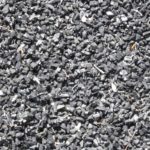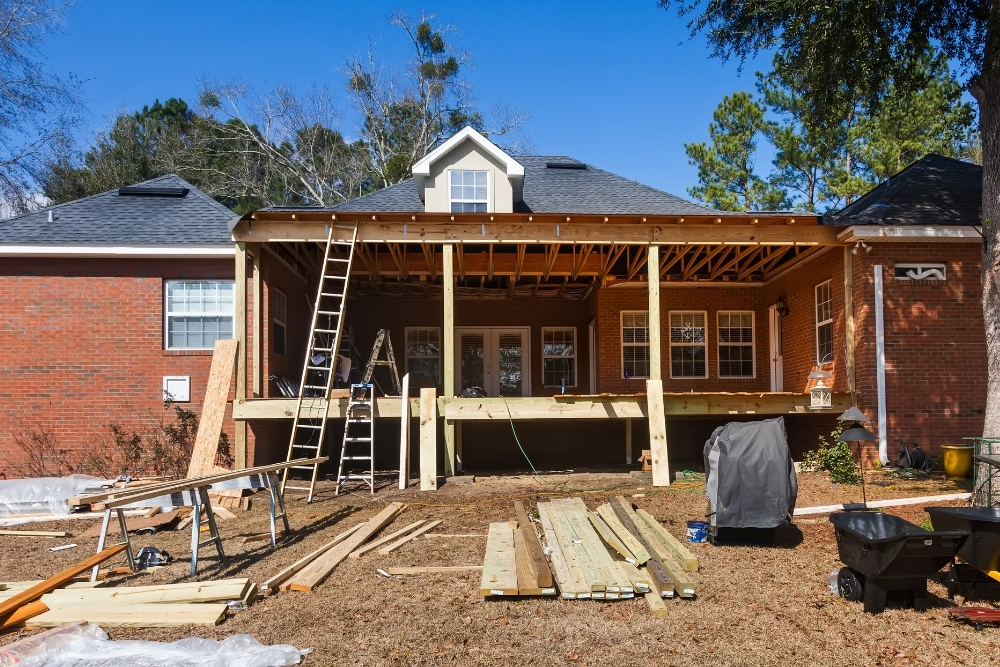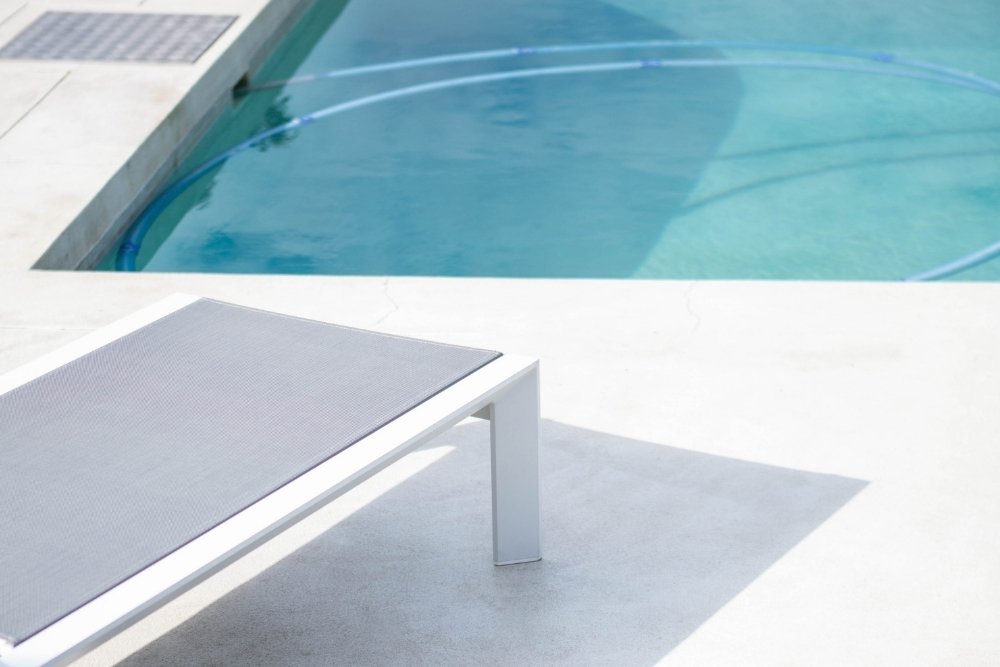When applied properly, mulch can keep your garden tidy and insulate plants from extreme weather. However, mulch will decompose or fade over time, and it’ll probably need to be replaced. So, how often should you replace mulch?
You may need to replace hard organic mulch such as bark or wood chips after 4-7 years and soft mulch, like grass, leaves, or straw, after about 1-2 years. Inorganic options like rubber mulch can last up to 10 years but may need to be replaced sooner due to color fading or disintegration.
Let’s have a closer look at what happens to mulch, how often you have to replace it, and how to know when you need to refresh the mulch in your garden.
How Long Does Mulch Last?
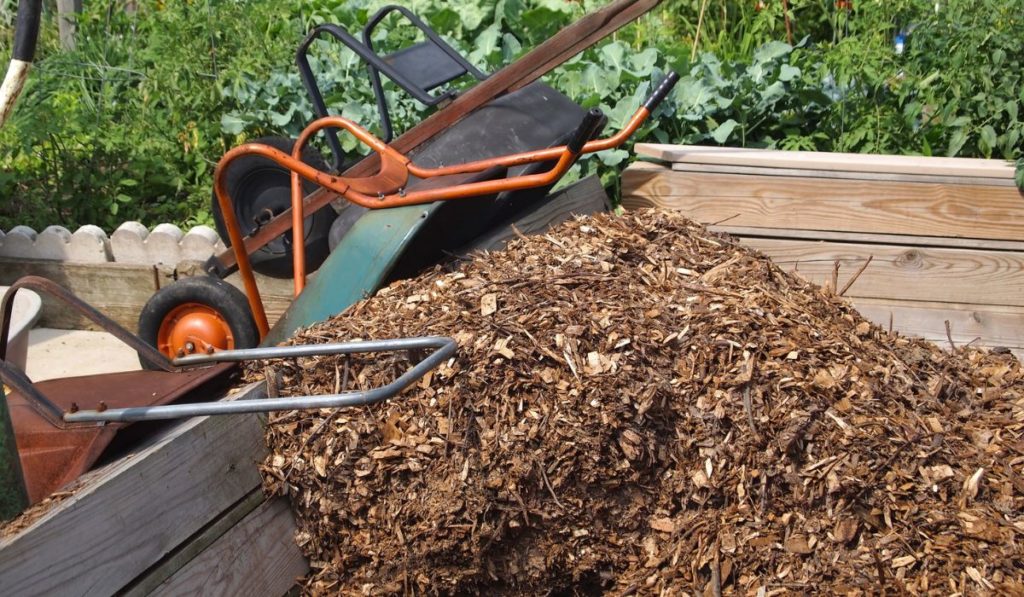
There’s no fixed period for how long mulch will last since this is determined by a number of factors, including the type of mulch, the amount of mulch used in a certain area, and how often you water the garden. However, most types of organic mulch will last between 5 and 7 years.
Organic mulch made of wood chips or bark usually lasts more than 5 years since it takes time to decompose. However, other types of organic mulch may last only 1-2 years, and you’ll have to replenish it yearly. Homemade mulch usually needs to be replenished yearly since it’s made from leaves or grass clippings, both of which decompose pretty quickly.
Inorganic mulch usually lasts between 5 and 10 years since it doesn’t decompose, and you’ll only need to replenish it if it loses color. Rubber mulch (on Amazon) is especially durable and usually comes with a guarantee of 10 years. If you’re using pebbles as mulch, you may never need to replenish it since rocks and pebbles don’t break down or lose color.
However, every garden is different, and there are many factors that will determine how long mulch lasts in your garden. If you apply the right amount of quality mulch, you’ll only need to replenish it after a few years.
What Kind of Mulch Lasts the Longest?
Inorganic mulch usually lasts the longest since it doesn’t decompose easily. Among organic mulch types, wood chips usually last longer since they will take many years to decompose. Mulch made from bark will also last several years before you need to replace it.
Inorganic mulch, such as rubber mulch, will usually last around 10 years in normal conditions. However, while companies may claim that their mulch doesn’t lose its color for at least 10 years, many people testify that inorganic mulch starts to fade after as little as 5 years. Still, rocks and pebbles can last for up to 20 years without needing to be replaced.
The problem with inorganic mulch is that replacing it requires removing the old mulch. This is a time-consuming process, especially in the case of rubber mulch. Inorganic mulch also doesn’t decompose, and you can’t add a new layer on top of a layer of faded mulch.
If you’re looking for organic mulch that will last a few years, choose wood chips or bark. Wood chips (on Amazon) last longer than bark, but bark is more affordable and will last at least 4-5 years. If you use straw, grass clippings, or a mixture of shredded leaves and other organic materials as mulch, you’ll have to add a new layer of mulch every 1-2 years.
Lastly, always choose dyed mulch since it will retain its color for longer. You can get organic mulch made from dyed wood chips or bark. The bottom layer of this mulch will decompose first and lose its color, while the top layer will retain its color for longer.
How Do You Refresh Mulch?
Even though most types of organic and synthetic mulches will last more than 5 years, you may need to refresh the mulch every couple of years to keep your garden looking tidy. How often you should refresh mulch depends on the type of mulch and how much sunlight exposure the mulch gets. So, how do you know when to refresh mulch in your garden?
You’ll need to refresh mulch when it becomes too shallow, decomposes, or loses its color. You should also refresh mulch if it doesn’t drain properly or the mulch gets washed away due to soil erosion.
When refreshing mulch, keep these factors in mind:
Depth
The ideal depth for organic mulch is 2-4 inches. If the mulch in your garden has depleted, check a portion of the soil to see how much you need to add. For instance, if there’s already an inch of mulch in your garden, you only need to add another inch or two when refreshing it.
Depth is one of the most important factors to consider when refreshing mulch. If you place too little mulch, it won’t provide adequate insulation to plants or block weeds. However, if you place mulch too deep, it will inhibit the growth of plants and warm up the soil too much in the summer. Avoid adding more than 4 inches of organic mulch and 3 inches of inorganic mulch to your yard.
Quality
Another thing to look at when refreshing mulch is the state the existing mulch is in. If the mulch becomes wet and soggy and loses its color, you may have to add another layer to refresh it. However, if the existing mulch in your yard hasn’t decomposed fully, you may only need to add an inch of additional mulch.
Always refresh mulch when it becomes wet and soggy since it may affect the soil’s drainage. As mulch decomposes, it will start to retain more water, and the dampness may attract pests and affect plant growth.
While you don’t need to replace the decomposing mulch, you should add a layer of fresh mulch over it.
Color
Although mulch has many practical benefits for plants, it’s also known for its aesthetic appeal. Mulch is usually a dark brown or black color and looks great in flower beds, around trees, and in other parts of the yard. However, mulch will fade after a few years, and you’ll have to refresh it to keep your garden tidy.
If the mulch hasn’t yet depleted or decomposed but has faded, you’ll only need to add a thin layer of fresh mulch to keep your garden looking neat.
What Happens to Mulch Over Time?
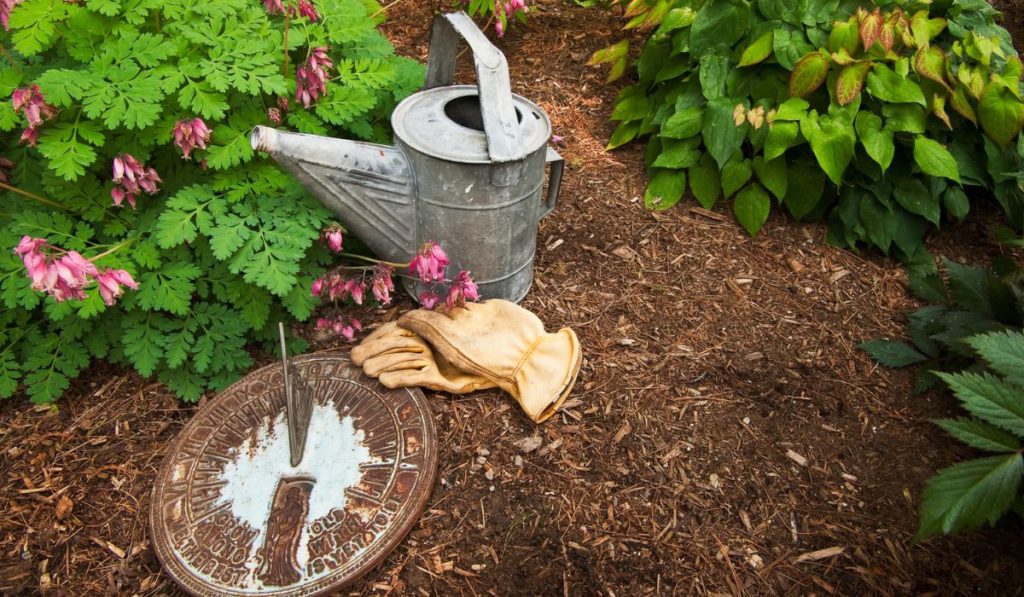
Organic mulch will decompose over time and mix into the soil like compost. Both organic and synthetic mulch will fade in the sun and lose their luster. Mulch may also become scattered with wind or rain, and a layer of mulch in your yard will become depleted.
Synthetic mulch won’t decompose the same way as organic mulch, but you’ll still need to replace it as it may fade in the sun. However, this often requires removing some of the existing mulch, which can be difficult, especially if it’s rubber mulch.
While organic mulch decomposes over time, you can add another layer on top of the existing mulch. The decomposed mulch will also enrich the soil with nutrients and substitute for compost.

